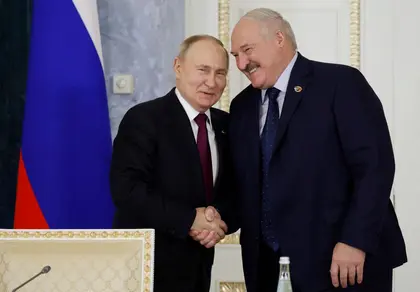On Tuesday the independent Russian media site Meduza cited an interview published by the Belarusian Belta news site with its ambassador to Moscow, Dmitry Krutoy. In it he claimed the “two allies” were working to create a shared database of “extremists,” and that combining the lists “will be resolved in the near future.”
Krutoy said that “Citizens are bewildered when some of the resources recognized as extremist, in Russia, publish some messages here [in Belarus], or vice versa, and those which are recognized as extremist in our country, publish messages in Russia… [where] criminal cases are not initiated in the Russian Federation.
JOIN US ON TELEGRAM
Follow our coverage of the war on the @Kyivpost_official.
“Of course, we need more coordination between law enforcement agencies. I think this will be resolved in the near future,” he added.
The list of those “involved in extremist activities” is maintained by the Ministry of Internal Affairs of Belarus, while the list of “extremist materials” is maintained by the Ministry of Information and has existed since 2008 but has greatly expanded significantly since 2020 after authorities cracked down on protests against President Alexander Lukashenko's disputed re-election.
Belarus now lists almost 4,000 individuals and organizations that are involved in activities of an “extremist nature;” it includes websites and social networks of independent media, telegram channels, public initiatives, books and magazines.

Belarus Detains Relatives of Political Prisoners in Nationwide Raids
In comparison Russia’s databases of “extremists and terrorists” includes more than 13,000 names and almost 5,500 banned materials including books and songs.
Under Russian law, individuals and organizations who are convicted of producing or being in possession of extremist materials can face up to 10 years in prison.
Meduza said that Moscow has not yet commented on Krutoy’s announcement.
You can also highlight the text and press Ctrl + Enter






